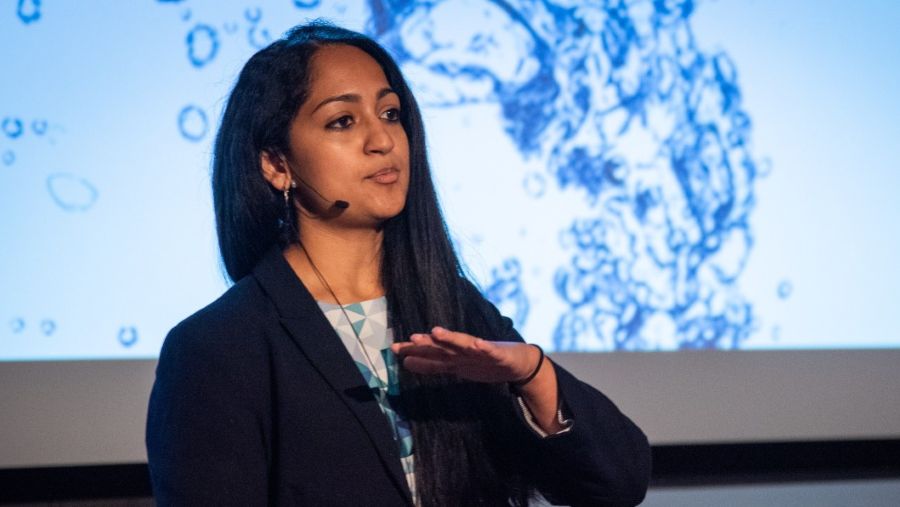Ones to Watch: Akanksha Menon
Ones to Watch: Akanksha Menon


This young engineer is advancing scalable technologies that sit at the nexus of two critical resources: water and energy. That’s why she’s on Mechanical Engineering’s Watch List 2025.
From toy rockets to books about climate change, Akanksha Menon can point to a number of influences that guided her toward engineering. But she vividly remembers a moment at the 2012 ASME Energy Sustainability Conference where, as an undergrad student exploring different career paths, something clicked: “I saw textbook concepts being applied to design real world systems and realized, oh my gosh, this is what I want to do. This is my community.”
Today, Menon runs the Water Energy Research Lab (WERL) at Georgia Tech, where she’s advancing scalable technologies that sit at the nexus of two critical resources: water and energy.
Menon’s lab is developing thermal desalination systems to recover clean water from highly saline waste streams such as brine from reverse osmosis or produced water from oil and gas operations. Standard membrane technologies struggle with these concentrated sources and leave behind large volumes of brine, Menon explained, which is costly to manage. Her team’s system, based on Air Gap Diffusion Distillation (AGDD), operates at ambient pressure using engineered polymer surfaces to prevent salt buildup and corrosion. With integrated heat recovery and high thermal efficiency, the technology aims to recover more than 90 percent of water and lower the cost of treatment.
To read more about Akanksha Menon and her work, read her full profile in the Watch List 2025.

Today, Menon runs the Water Energy Research Lab (WERL) at Georgia Tech, where she’s advancing scalable technologies that sit at the nexus of two critical resources: water and energy.
Menon’s lab is developing thermal desalination systems to recover clean water from highly saline waste streams such as brine from reverse osmosis or produced water from oil and gas operations. Standard membrane technologies struggle with these concentrated sources and leave behind large volumes of brine, Menon explained, which is costly to manage. Her team’s system, based on Air Gap Diffusion Distillation (AGDD), operates at ambient pressure using engineered polymer surfaces to prevent salt buildup and corrosion. With integrated heat recovery and high thermal efficiency, the technology aims to recover more than 90 percent of water and lower the cost of treatment.
To read more about Akanksha Menon and her work, read her full profile in the Watch List 2025.

Watch List 2025
Meet 25 early career professionals redefining what it means to lead, innovate, and represent engineering in 2025.






